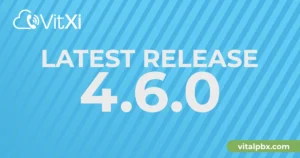Understanding VoIP: What It Is and How It Benefits Your Business in 2025
The way businesses communicate is constantly evolving. Traditional copper-wire phone lines, once the backbone of commerce, are rapidly being replaced by a more flexible, powerful, and cost-effective technology. If you’re still tethered to an old-school landline system, you’re likely overpaying for fewer features. The solution? Understanding VoIP (Voice over Internet Protocol), the technology that is powering modern business communications across the globe.
VoIP isn’t just a futuristic concept; it’s the established standard for business communication in 2025. It’s the engine behind crystal-clear calls, seamless remote work, and integrated communication platforms. This guide will demystify VoIP, explaining exactly what it is, how it functions, and most importantly, how it can provide tangible, game-changing benefits for your business.
What is VoIP? Demystifying the Technology
At its core, the concept of VoIP is surprisingly simple. It’s a method for making and receiving phone calls over the internet instead of traditional analog phone lines. If you’ve ever used a service like Skype, WhatsApp calling, or Facebook Messenger, you’ve already used a form of VoIP.
A Simple Definition: Voice over Internet Protocol
VoIP stands for Voice over Internet Protocol. Let’s break that down. “Voice” is your conversation. “Over IP” means it’s traveling across the internet (Internet Protocol), the same network you use to send emails, browse websites, and stream videos.
Instead of sending your voice as an electrical signal over a dedicated copper wire, VoIP technology converts your voice into digital data packets. These tiny packets are then sent over the internet to their destination, where they are reassembled into clear, understandable audio for the person on the other end of the line. It all happens in milliseconds, resulting in a seamless conversation.
How Does VoIP Work? From Analog to Digital
The process of a VoIP call might sound complex, but it’s an elegant and efficient system that happens instantly. Here’s a simplified look at the journey your voice takes:
- Speaking: When you speak into your phone or headset, your voice creates an analog sound wave.
- Conversion: A VoIP device (like an IP phone or a softphone application) instantly converts this analog signal into compressed digital data packets.
- Transmission: These packets are labeled with the destination address and sent across the internet, just like any other data. They might even take different routes to get there for maximum efficiency.
- Reassembly: At the receiving end, the packets are reassembled in the correct order.
- Playback: The digital data is converted back into an analog sound wave, which the other person hears as your voice.
This entire process is managed by a central system known as a PBX (Private Branch Exchange). A modern IP PBX like VitalPBX acts as the command center for your entire business phone system, intelligently routing calls, managing features, and ensuring everything runs smoothly. For a deeper technical dive into the protocols involved, resources from industry leaders like Cisco provide excellent documentation.
The Top Business Benefits of Switching to a VoIP System
Understanding the technology is one thing, but the real question is: what’s in it for your business? The benefits of adopting a modern VoIP system are vast and impact everything from your bottom line to your team’s productivity.
Significant Cost Savings on Your Communication Bills
This is often the most compelling reason businesses make the switch. Traditional phone systems come with hefty line rental fees, expensive maintenance contracts, and high per-minute charges, especially for long-distance and international calls. VoIP flips this model on its head.
- Reduced Monthly Bills: VoIP plans are often significantly cheaper than traditional business phone line packages.
- Free Internal Calls: Calls between your company’s different office locations or to remote employees are typically free, as they all happen over your internal data network.
- Lower Long-Distance Rates: Calling across the country or internationally is drastically cheaper because the calls travel primarily over the internet, bypassing expensive traditional carrier networks. For many businesses, this alone can result in savings of 40-70%.
Unmatched Scalability and Flexibility for Growth
Your business isn’t static, so why should your phone system be? With traditional phone systems, adding a new employee meant calling a technician, installing new physical wiring, and waiting days or weeks. This process was costly and slow.
VoIP offers incredible scalability. Need to add five new team members for a seasonal rush? You can provision new extensions in minutes through a simple software interface. A department is downsizing? Those same lines can be removed just as easily. This flexibility allows your communication system to grow and shrink precisely with the needs of your business, ensuring you only ever pay for what you use.
Empowering Remote and Hybrid Workforces
The modern workplace is no longer confined to a single office building. In 2025, supporting remote and hybrid teams is not a perk; it’s a necessity. VoIP is the foundational technology that makes this possible.
With a VoIP system, your employee’s office extension is no longer tied to a physical desk. They can make and receive calls on their business number from anywhere with an internet connection using:
- A Softphone: A software application on their laptop or desktop computer.
- A Mobile App: An app on their smartphone, like the VitalPBX Connect app, turns their personal device into a secure business phone.
- A Physical IP Phone: They can even take their desk phone home, plug it into their home internet, and it will work exactly as it did in the office.
Advanced Features That Boost Productivity
VoIP systems come packed with a suite of powerful features that were once only available to large enterprises with massive budgets. These tools are designed to streamline workflows, improve customer service, and boost overall efficiency.
- Auto-Attendant (IVR): A virtual receptionist that greets callers and directs them to the right person or department (“Press 1 for Sales, Press 2 for Support”).
- Voicemail-to-Email: Receive voicemails as audio files directly in your email inbox, allowing you to listen and respond from anywhere.
- Advanced Call Routing: Intelligently route calls based on time of day, caller ID, or team availability.
- Built-in Conferencing: Easily host audio and video conference calls with colleagues and clients without needing a separate, expensive service.
- CRM Integration: Connect your phone system to your Customer Relationship Management software to get screen-pops with caller information, improving customer interactions.
- Call Recording: A valuable tool for training, quality assurance, and compliance purposes.
Getting Started with VoIP: What Your Business Needs
Making the switch to VoIP is more straightforward than you might think. A successful transition hinges on a few key components.
A Solid Internet Connection is Key
Since VoIP runs over the internet, the quality of your connection is paramount. Before you switch, you should ensure you have a business-grade broadband connection (like fiber, cable, or dedicated internet access) with sufficient bandwidth. It’s not just about download speed; you also need low latency and minimal “jitter” (variation in packet delay) to ensure high-quality, stable calls.
Choosing Your Hardware: IP Phones, Headsets, or Softphones?
You have several options for how your team will make and receive calls, and you can even mix and match to suit different roles.
- IP Phones: These look and feel like traditional desk phones but are designed to plug directly into your internet network instead of a phone jack. They offer a familiar experience with excellent audio quality.
- Headsets: For employees who are on the phone frequently, like sales or support teams, a high-quality USB or Bluetooth headset connected to a computer is a comfortable and ergonomic choice.
- Softphones: As mentioned earlier, a softphone is a software application that runs on a computer or mobile device, turning it into a fully-featured business phone. This is the most flexible and cost-effective option, perfect for remote workers.
The Brains of the Operation: Your PBX System
The IP PBX is the heart of your VoIP system. It’s the software that manages all your users, routes all your calls, and enables all the advanced features. You have two main choices here: a hosted service or a self-hosted solution. While hosted services are popular, a self-hosted or on-premise IP PBX like VitalPBX gives you ultimate control, unparalleled customization, and long-term cost savings by eliminating per-user monthly fees.
Frequently Asked Questions About VoIP for Business
Navigating a new technology always comes with questions. Here are answers to some of the most common queries businesses have about VoIP.
Q: Is VoIP as reliable as a traditional landline?
A: Absolutely. In the early days, VoIP quality was dependent on internet stability. Today, with the widespread availability of high-speed business internet, modern VoIP systems are exceptionally reliable. Furthermore, solutions like VitalPBX can be configured with redundancy and failover options, ensuring your business communications stay online even if one connection fails—a level of resilience many traditional systems can’t match.
Q: Can I keep my existing business phone number?
A: Yes, in nearly all cases. The process is called “number porting,” and it allows you to transfer your existing phone numbers from your old provider to your new VoIP system. This ensures a seamless transition for your customers, who can continue to reach you at the number they already know.
Q: What is the difference between a hosted VoIP service and an on-premise IP PBX like VitalPBX?
A: A hosted VoIP service is a cloud-based subscription where a third-party provider manages the PBX for you, and you pay a monthly fee per user. An on-premise or self-hosted IP PBX like VitalPBX is software you install on your own server (either in your office or in a private cloud). This gives you complete ownership and control over your system, eliminates recurring per-user fees, and offers deeper customization and integration capabilities. For more details, you can read our comparison on On-Premise vs Cloud PBX.
Q: How secure is VoIP?
A: Security is a critical consideration. Reputable VoIP solutions use standard-based security protocols like TLS (Transport Layer Security) for signaling and SRTP (Secure Real-Time Transport Protocol) to encrypt the audio of your calls. This prevents unauthorized listening. Using a self-managed system gives you the added benefit of controlling your own firewall and security settings for an even more robust defense.
Your Next Step in Business Communication
The evidence is clear: Voice over IP is no longer the future of business communication—it is the present. By leveraging the internet, VoIP delivers a more affordable, flexible, and feature-rich solution than any traditional phone system can offer. It empowers your team to work from anywhere, enhances productivity with powerful tools, and scales effortlessly with your business’s ambitions.
Embracing VoIP means investing in a communication system built for the agility and demands of the modern business world. It’s a strategic move that pays dividends in cost savings, operational efficiency, and future-readiness.
Ready to transform your business communications? Discover the power and flexibility of a modern IP PBX. Download and try VitalPBX for free today to see how easy it is to build a professional, scalable, and cost-effective phone system for your business.




